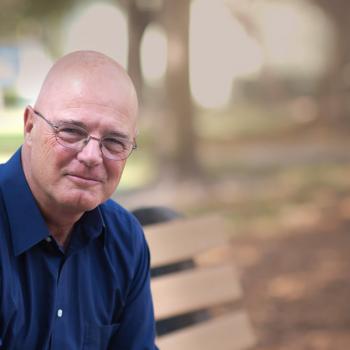Editor’s Note: This article is part of a Patheos’ symposium, “Does Seminary Have a Future?” Read other perspectives here.
When I’m asked about the future of seminaries, my first response is to say that almost 100% of the current seminarians I meet are raving fans of their education.
Seminary is providing for them what they wish churches would provide:
- A robust intellectual environment where they can openly and energetically explore God, the Bible, doctrine, faith, liturgy, mission, church history, and the spiritual life.
- A diverse ecumenical environment where they can read and learn from (and with) a broad range of Christians from a variety of cultures, denominations, and perspectives.
- A reverent soul-friendly environment where spiritual direction, practices, and formation are taken seriously.
- An engaged missional environment at the intersection of faith, contemporary global crises, and local social needs—where students are guided into experiences of practical involvement.
- An accepting communal environment where they can experience what Bonhoeffer called “life together.”
Under ideal circumstances, seminarians feel empowered by this peak experience of intense spiritual formation in an intellectually-rich, ecumenical, soul-friendly, missional, communal environment. Their seminary experience guides and inspires them when they arrive in a local church context—helping them replicate their positive seminary experience for others, so that their local congregation can become a mini-seminary. For some, I think this transition works well.
But too many seminarians step out of seminary and straight into a brick wall. When they arrive in a local congregation, they experience nearly the opposite of their positive seminary experience. Church members seem to want:
- A familiar closed environment where old answers to outdated questions are repeated in predictable ways, and no new questions are allowed to disturb the peace.
- A rigid sectarian environment where the boundaries between “us” and “them” are constantly reinforced and celebrated.
- A superficial environment where spiritual vulnerability is dangerous and where institutional and/or doctrinal maintenance trumps spiritual hunger and thirst.
- An insular environment which maintains aloofness, fear, or disdain toward the world and its problems.
- A demanding consumerist environment where people seek religious goods and services tailored to their exacting standards and tastes.
Thankfully, there are many exceptions to this pattern. But the pattern is indeed widespread—especially because clergy in more open, vibrant, and healthy churches are hesitant to leave for obvious reasons, leaving job openings in the most distressed churches for the freshly-minted seminary grads who are least prepared to deal with them.
Seminaries may be able to do a better job of equipping rising seminarians for transformative leadership in change-averse, ingrown, and non-missional churches. There’s a growing bank of expertise in change agency and organizational development that could – and should – be given higher priority in seminary curricula.
But recalling that Jesus himself was unable to transform the Temple establishment of his day, and remembering that Paul was run out of a good many more synagogues than he was welcome in, I’m not sure that any amount of training can equip seminarians for transformation in churches that are quite happy with how they are—or were, thank you very much. It may sound harsh for me to say, but I think it is unethical to send gifted, idealistic, and high-potential young leaders into intractable, dysfunctional congregations that will grind them up, disillusion them, and damage them for life.
And I have met many who fit this description.
That’s why my recommendation is for seminaries of the future to turn towards the development of new faith communities, whether they be called churches or something else. The kinds of gifted, motivated, faith-filled people who are willing to invest time and money in a seminary education should be equipped, whenever possible, to form innovative and experimental new faith communities—communities which will embody the new kind of Christianity that attracts them to seminaries in the first place.
That’s not for everybody either, I know. The development of new faith communities isn’t a cakewalk. (Those who glibly say that “giving birth is easier than raising the dead” are seldom mothers—otherwise, they wouldn’t use “easy” and “birth” in the same sentence.)
But rising numbers of spiritual-but-not-religious folks (bored, failed, or appalled by traditional churches) need new kinds of churches, churches that form people in a new kind of Christian spirituality for a new kind of mission in our rapidly-morphing world. And the development of those kinds of churches seems like a challenge more suited to the excellent education many seminarians are already receiving.
Seminary training isn’t supposed to be about preparation for a nice, cushy desk job. Neither is it supposed to be about preparation for decades of chaplaincy to congregations that want to be tended and serviced, not served and led.
What if, for the next couple decades anyway, seminaries became more like entrepreneurial boot camps than shop management schools?











